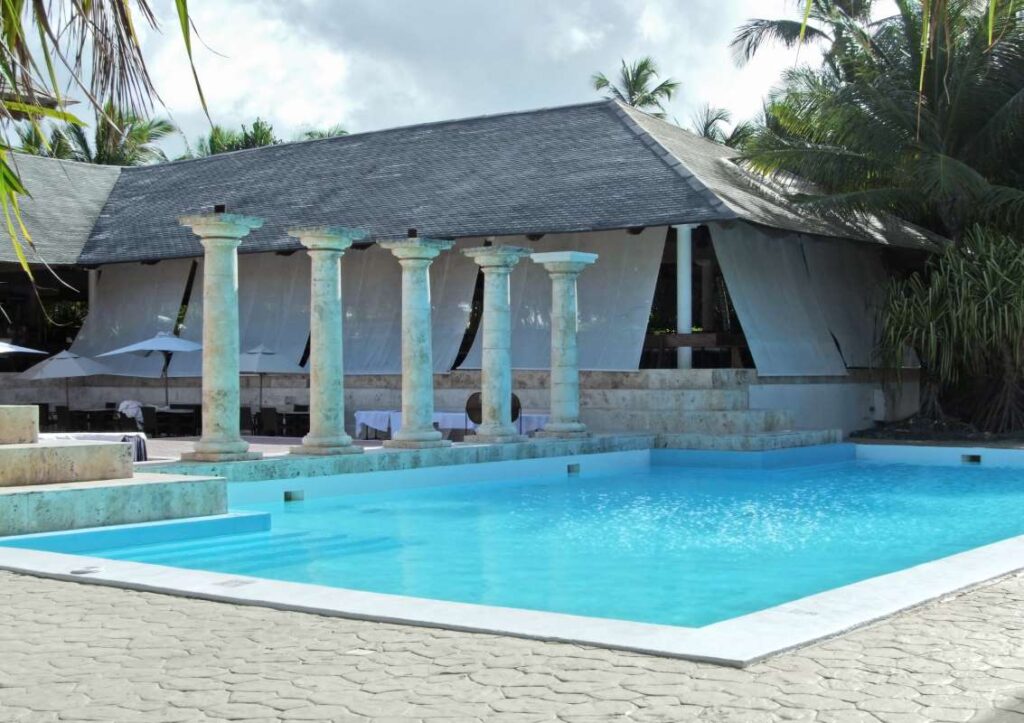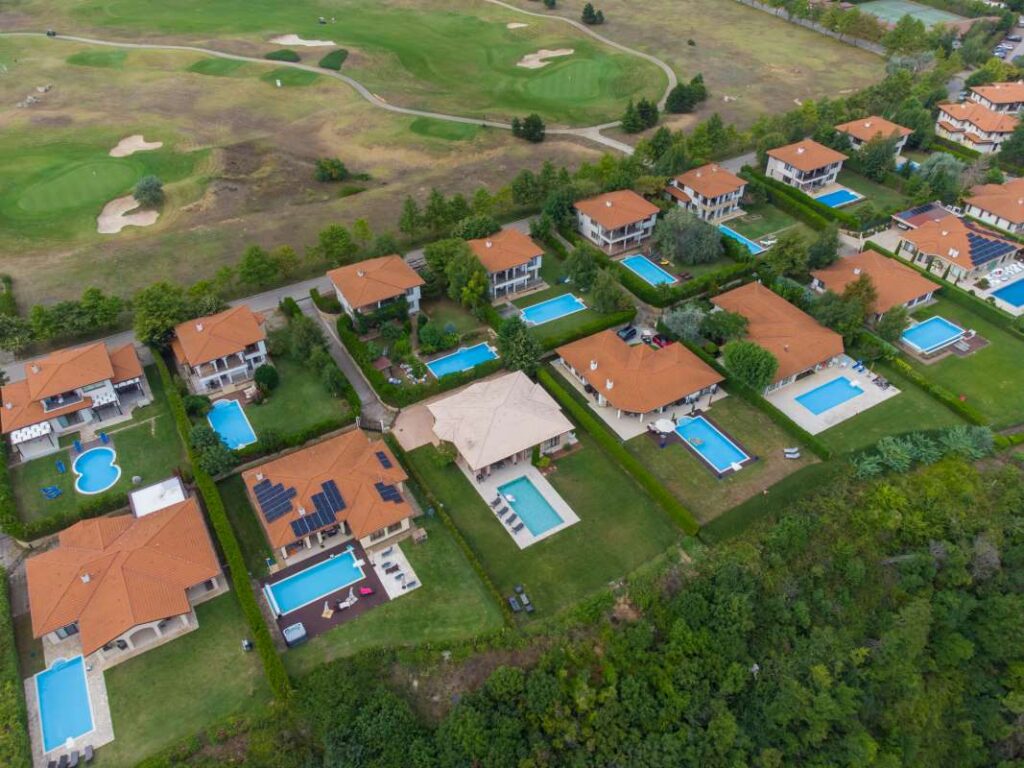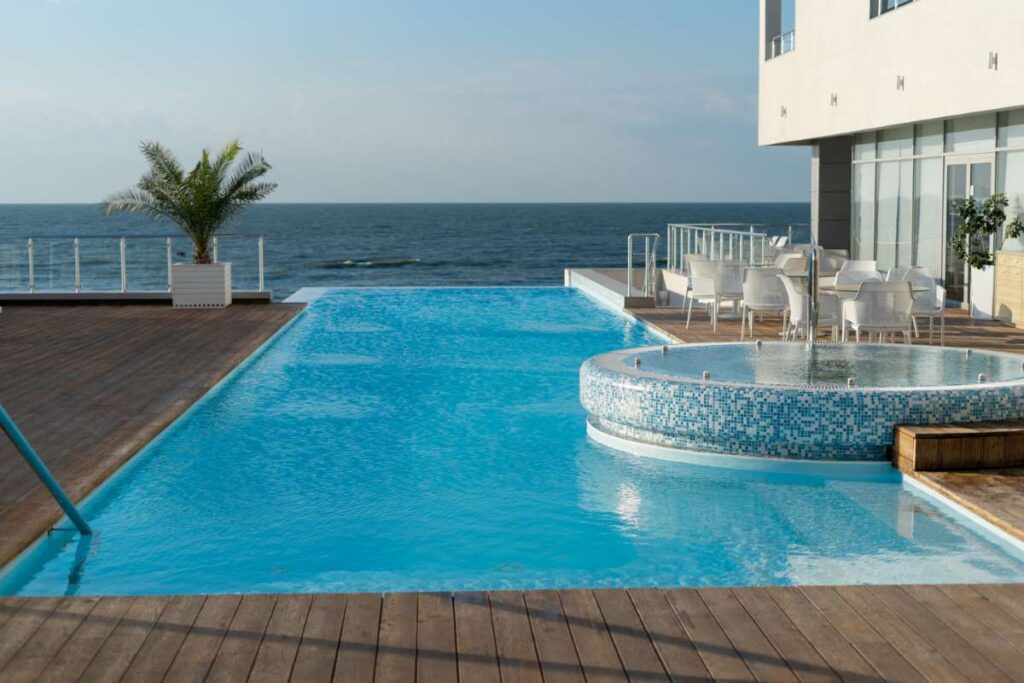Harnessing Geothermal Energy for Pool Heating
Discover how geothermal energy can revolutionize pool heating, offering a sustainable and cost-effective solution for pool owners.
Geothermal energy is rapidly gaining recognition as a sustainable and efficient source of energy, and its applications extend beyond electric power generation and residential heating. One intriguing and beneficial use of geothermal energy is in the realm of pool heating. This blog post will explore the fundamentals of geothermal energy, its advantages for heating pools, installation options, and practical considerations for pool owners looking to adopt this eco-friendly technology. By the end, you will have a comprehensive understanding of how geothermal can enhance your swimming experience while reducing your environmental footprint.
What is Geothermal Energy?
Geothermal energy harnesses the heat stored beneath the earth’s surface. This source of energy originates from the Earth’s formation and radioactive decay of minerals. The temperature of the Earth’s interior is significantly higher than surface temperatures, and this heat can be accessed through various methods. Here’s a deeper look into geothermal energy:- Heat Sources: The Earth’s core, mantle, and crust contain vast amounts of thermal energy. The temperature increases by approximately 25-30 degrees Fahrenheit for every mile you go beneath the surface.- Methods of Extraction: Geothermal energy can be extracted using geothermal power plants, ground source heat pumps, and direct use applications. For pool heating, ground source heat pumps (GSHPs) are commonly used.- Sustainability: Geothermal energy is considered renewable as the heat from the Earth is continuously replenished. This makes it a sustainable choice for energy needs.Harnessing geothermal energy for heating pools can significantly reduce energy costs and enhance the swimming experience throughout the year.
Advantages of Geothermal Pool Heating
There are numerous benefits associated with using geothermal energy for pool heating. Understanding these advantages can help pool owners make informed decisions:1. Energy Efficiency: Geothermal heating systems are known for their high efficiency. They can reduce energy costs by up to 70% compared to traditional electric or gas heaters. This is due to the fact that geothermal systems transfer heat rather than generate it, which requires less energy.2. Environmentally Friendly: Utilizing geothermal energy for pool heating decreases reliance on fossil fuels. This contributes to lower greenhouse gas emissions and helps combat climate change. Pool owners can enjoy guilt-free swimming, knowing they are supporting sustainable practices.3. Longevity and Low Maintenance: Geothermal systems have longer lifespans compared to conventional heating methods. With proper installation and maintenance, these systems can last for 25 years or more, making them a wise long-term investment.4. Consistent Heating: Geothermal systems provide a stable and consistent water temperature, ensuring your pool is warm and ready for use at all times. This is particularly beneficial in cooler climates or during cooler months.5. Reduction of Operating Costs: Although the initial installation cost can be higher than traditional systems, the reduced operational costs and longevity of geothermal systems make them a financially sound choice over time. 6. Integration with Other Systems: Geothermal heating systems can easily be integrated with solar panels or other renewable energy sources, further enhancing their sustainability and efficiency.Overall, geothermal energy offers a compelling alternative for pool heating that not only saves money in the long run but also benefits the environment.
Installation of Geothermal Pool Heating Systems
The installation of geothermal pool heating systems involves several steps, and understanding the process can help pool owners prepare for what lies ahead:1. Site Assessment: A qualified technician will assess your property to determine if it is suitable for a geothermal system. Factors like soil composition, available space, and local climate will be evaluated.2. Choosing the Right System: There are two primary types of geothermal systems for pool heating: closed-loop systems and open-loop systems. – Closed-loop systems circulate a mixture of water and antifreeze through underground pipes, absorbing heat from the ground. They are versatile and can be installed horizontally or vertically based on available land. – Open-loop systems use groundwater directly to transfer heat. These systems are generally more efficient but require a reliable water source.3. Installation: The installation process may involve excavating trenches for the piping, installing the heat pump, and connecting it to your pool’s plumbing system. This process typically takes a few days to a week, depending on the complexity of the installation.4. System Testing: After installation, the system will undergo testing to ensure it operates efficiently and effectively. This step is crucial to identify any potential issues before the system is fully utilized.5. Maintenance Considerations: Regular maintenance, including checking fluid levels and inspecting the heat pump, will ensure optimal performance. Most geothermal systems require minimal upkeep, especially when compared to traditional heating systems.Investing in a geothermal pool heating system can be a significant commitment, but the long-term benefits make it worthwhile.
Cost Considerations and Financial Incentives
The initial cost of a geothermal pool heating system can be higher than traditional gas or electric heaters. However, understanding the financial aspect can guide your decision:- Installation Costs: The installation cost of geothermal systems usually ranges from $10,000 to $30,000, depending on the size of the system and the complexity of the installation. This includes equipment and labor.- Operational Savings: Although the upfront investment is considerable, geothermal systems can save pool owners up to 70% on heating costs. This can result in significant savings over the system’s lifespan, making it a smart financial choice.- Incentives and Rebates: Many regions offer financial incentives for installing renewable energy systems, including geothermal heating. Homeowners can explore federal tax credits, state rebates, or local incentives that may reduce the overall installation cost. Researching these options can lead to considerable savings.- Financing Options: Some companies provide financing plans that allow homeowners to pay for their geothermal systems over time, alleviating the burden of upfront costs. Exploring financing options can make the switch to geothermal energy more accessible.In conclusion, while the initial costs may appear daunting, the long-term savings and environmental benefits make geothermal heating an attractive investment for pool owners.
Best Practices for Geothermal Pool Maintenance
Once you have installed a geothermal pool heating system, maintaining it properly is essential to ensure its longevity and efficiency. Here are some best practices for geothermal pool maintenance:- Regular Inspections: Schedule annual inspections with a qualified technician to check system performance and identify potential issues early. Regular inspections can help prevent costly repairs down the line.- Monitor Temperature Settings: Adjusting the thermostat to maintain optimal water temperature can enhance efficiency. Keeping your pool at a consistent temperature can also extend the lifespan of the heating system.- Check for Leaks: Regularly check the underground piping for any signs of leaks or soil disturbances. Early detection can save money and prevent larger issues from developing.- Maintain Water Chemistry: Ensuring proper water chemistry is crucial for the health of your pool and the efficiency of your heating system. Regularly test and adjust chemical levels to prevent damage to the heating elements.- Use Covers: Invest in a pool cover to minimize heat loss during cooler months or when the pool is not in use. This simple step can greatly improve the efficiency of your geothermal heating system.By adhering to these best practices, you can enjoy a consistently warm pool while maximizing the efficiency of your geothermal heating system.
Conclusion
Harnessing geothermal energy for pool heating presents a remarkable opportunity for pool owners seeking an efficient, sustainable, and cost-effective solution. The advantages of using geothermal systems, including energy efficiency, environmental friendliness, and long-term savings, make them an attractive choice for heating pools. As you consider the installation of a geothermal heating system, keep in mind the importance of proper maintenance and cost considerations. With the right approach, you can enjoy warm, inviting water year-round while contributing to a more sustainable environment. If you’re interested in exploring options for your own pool, consider looking into
pool routes for sale in your area. Superior Pool Routes provides comprehensive training and support, ensuring you can successfully manage your pool service business while utilizing innovative heating solutions like geothermal energy. For more information, check out our
how it works guide. Embrace the future of pool heating and make a difference today!



